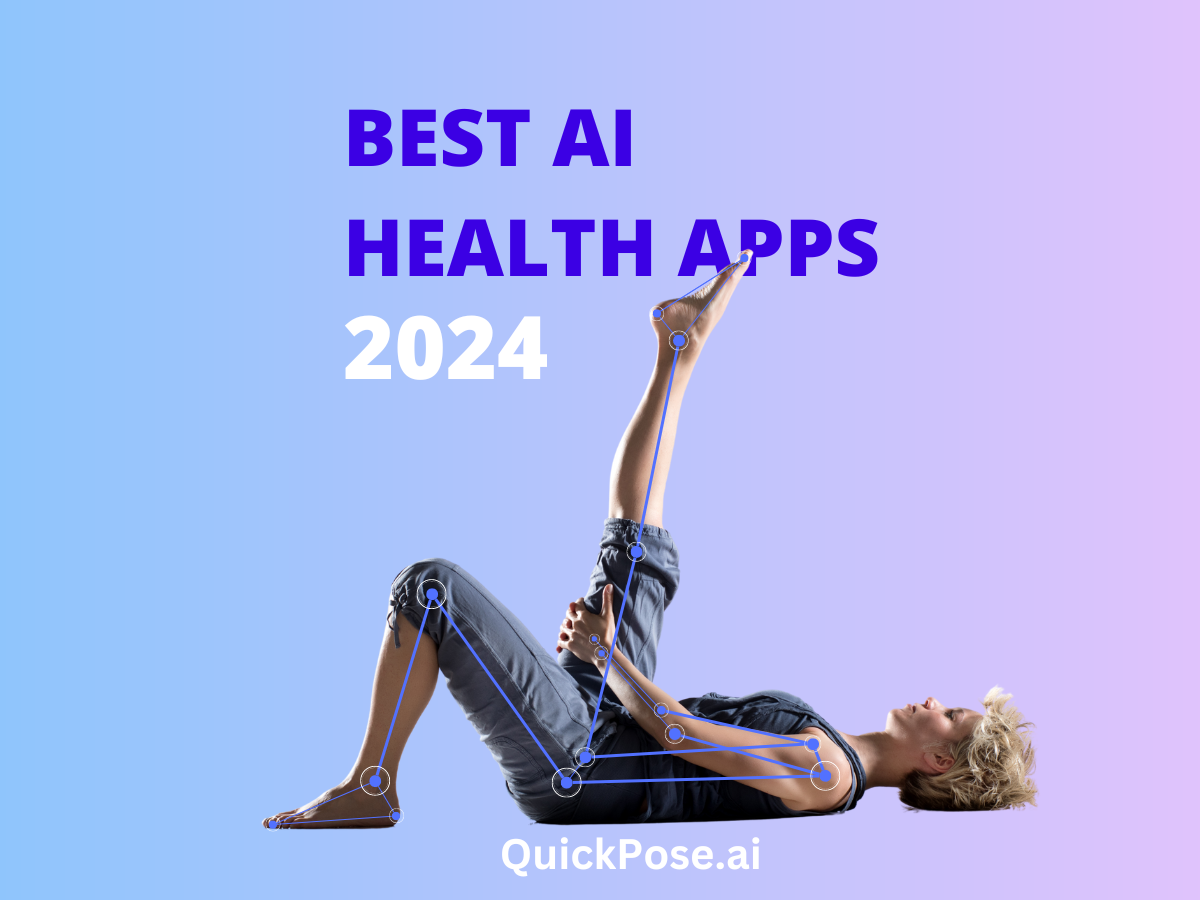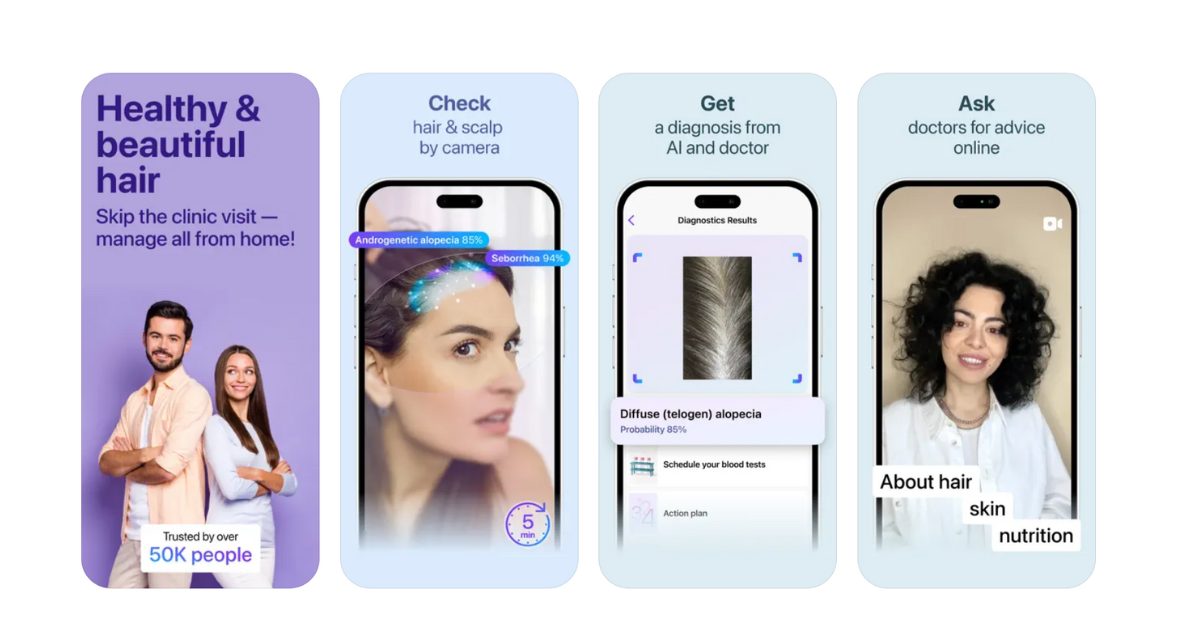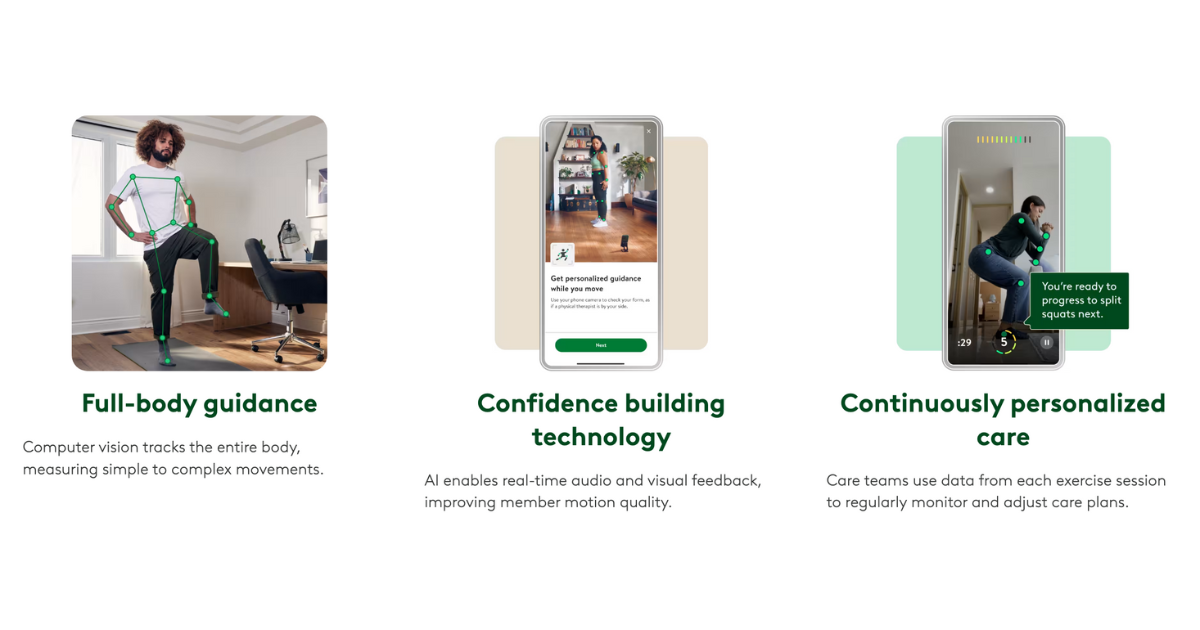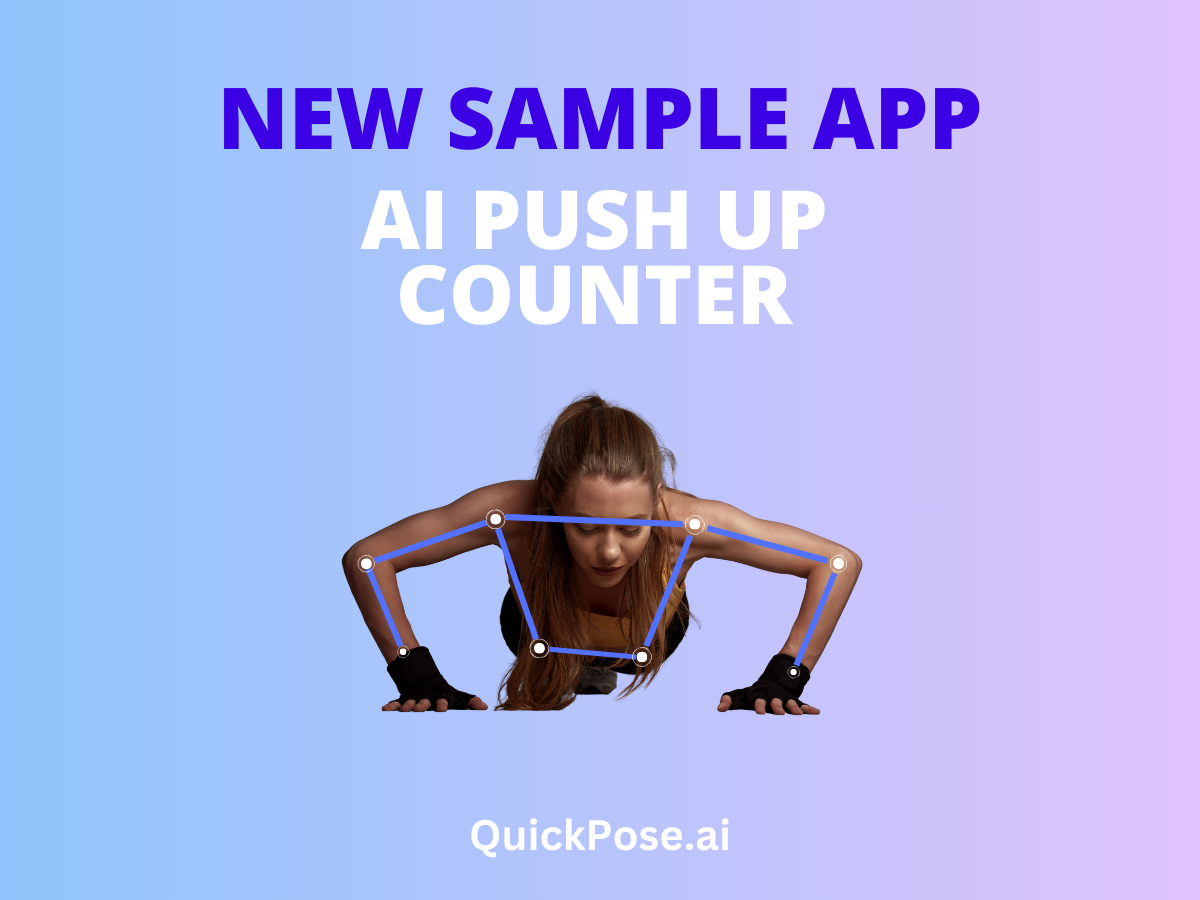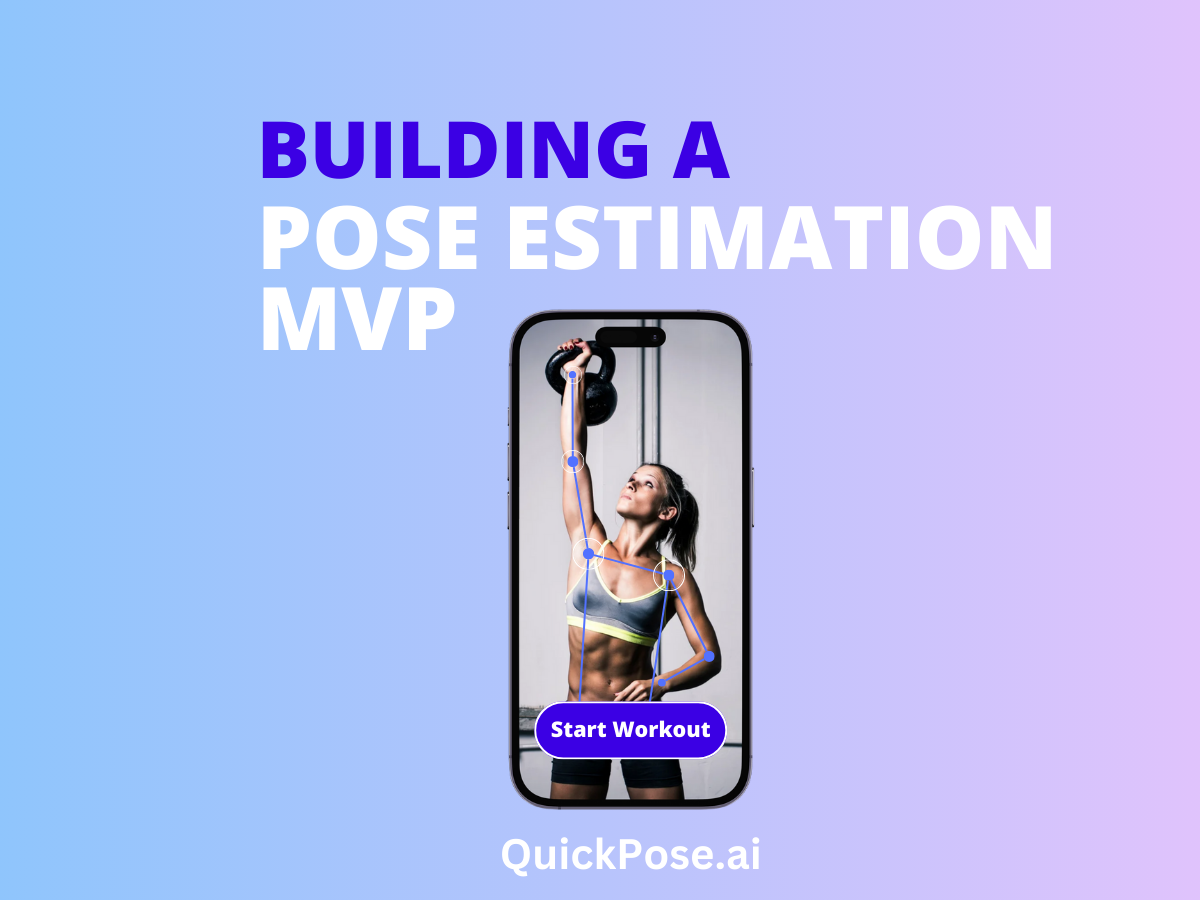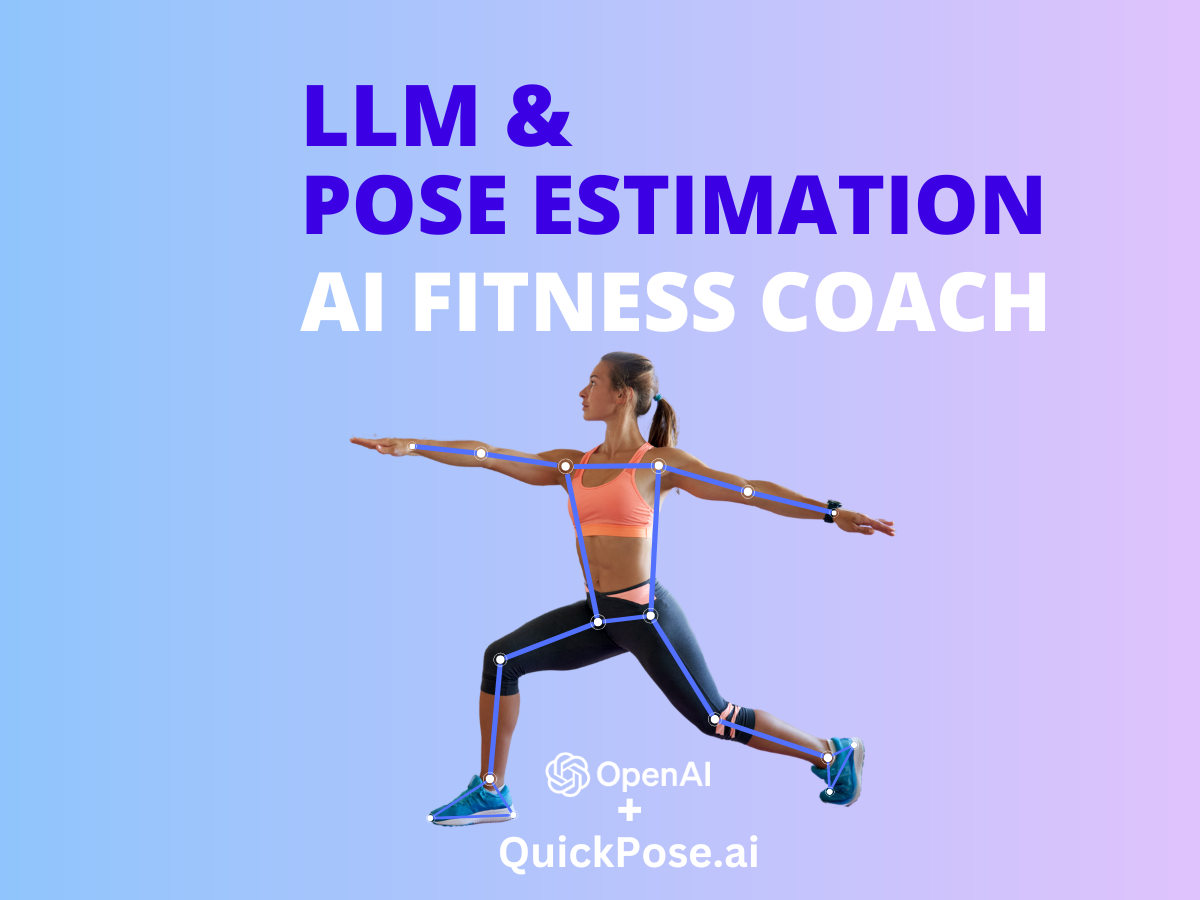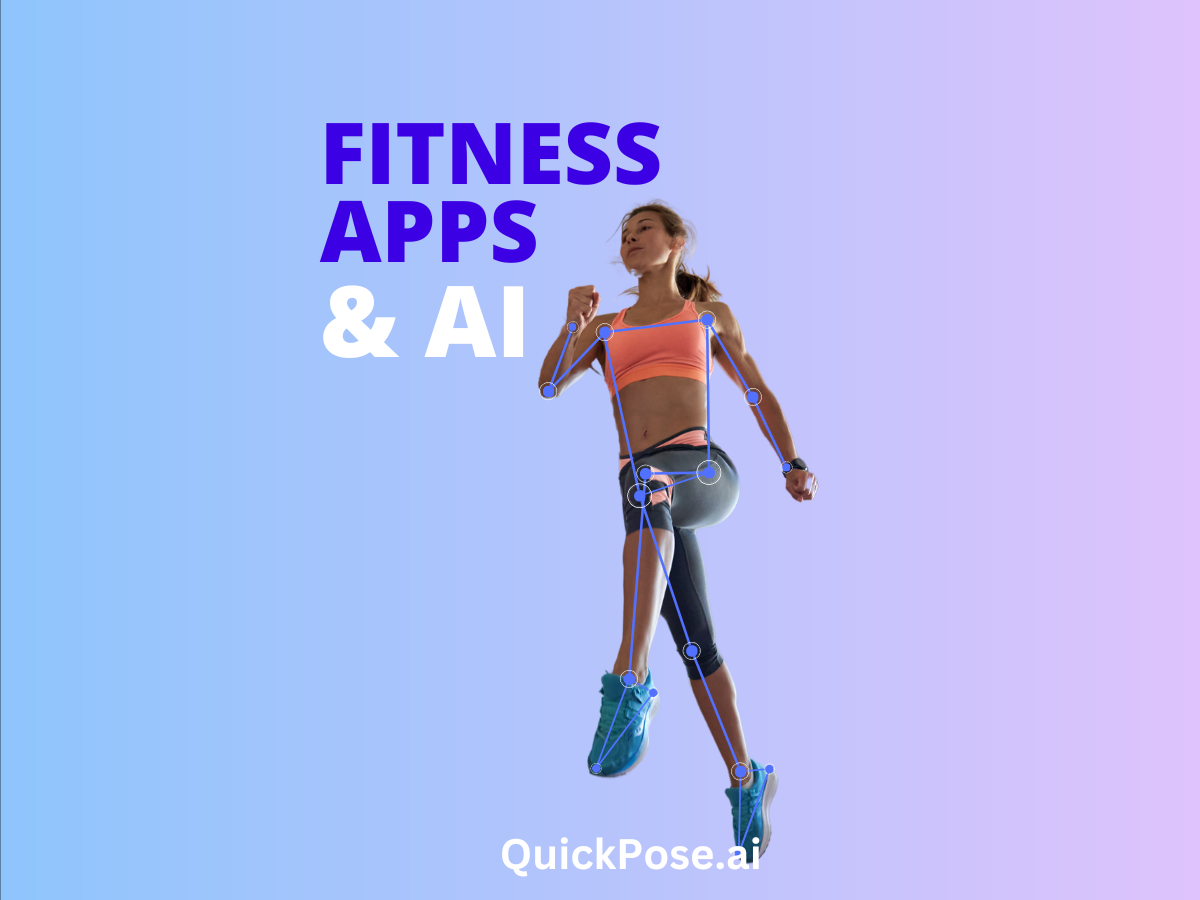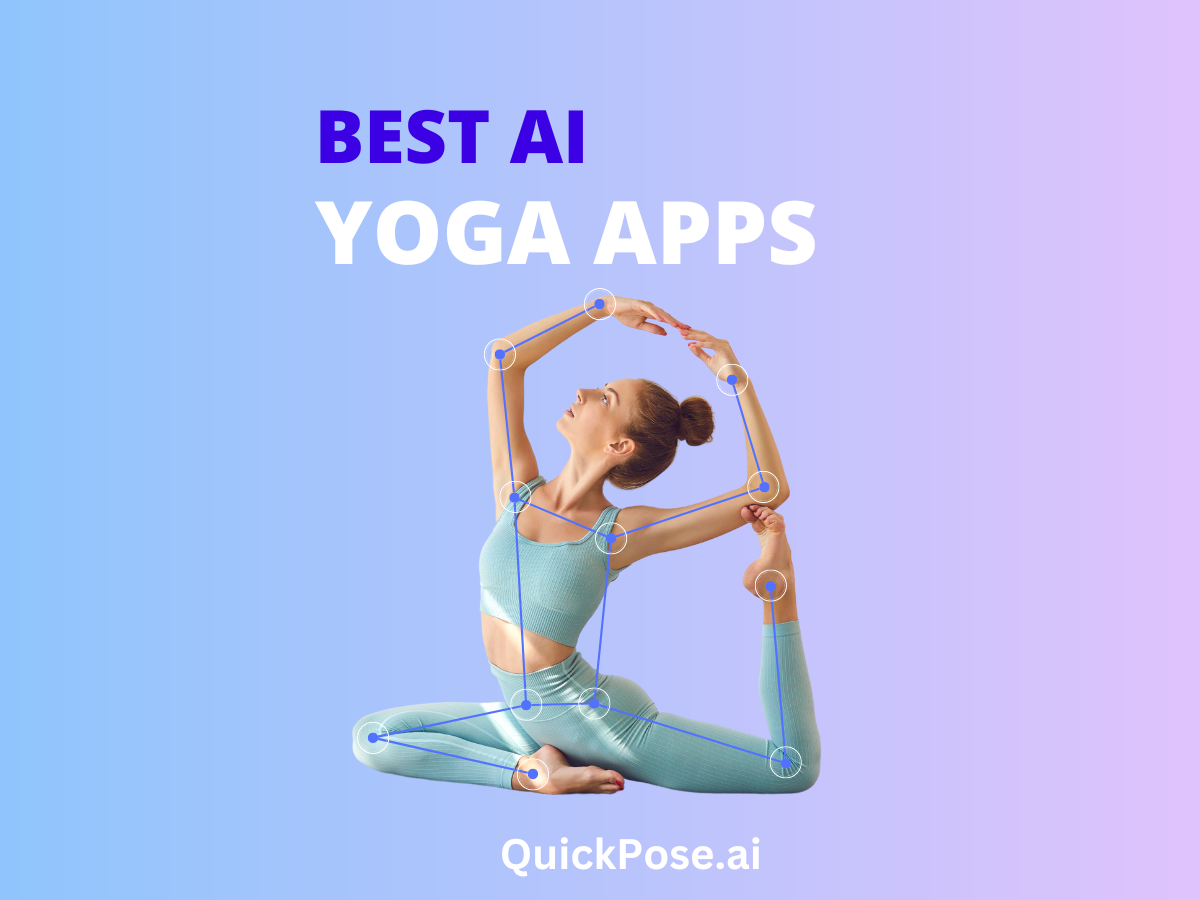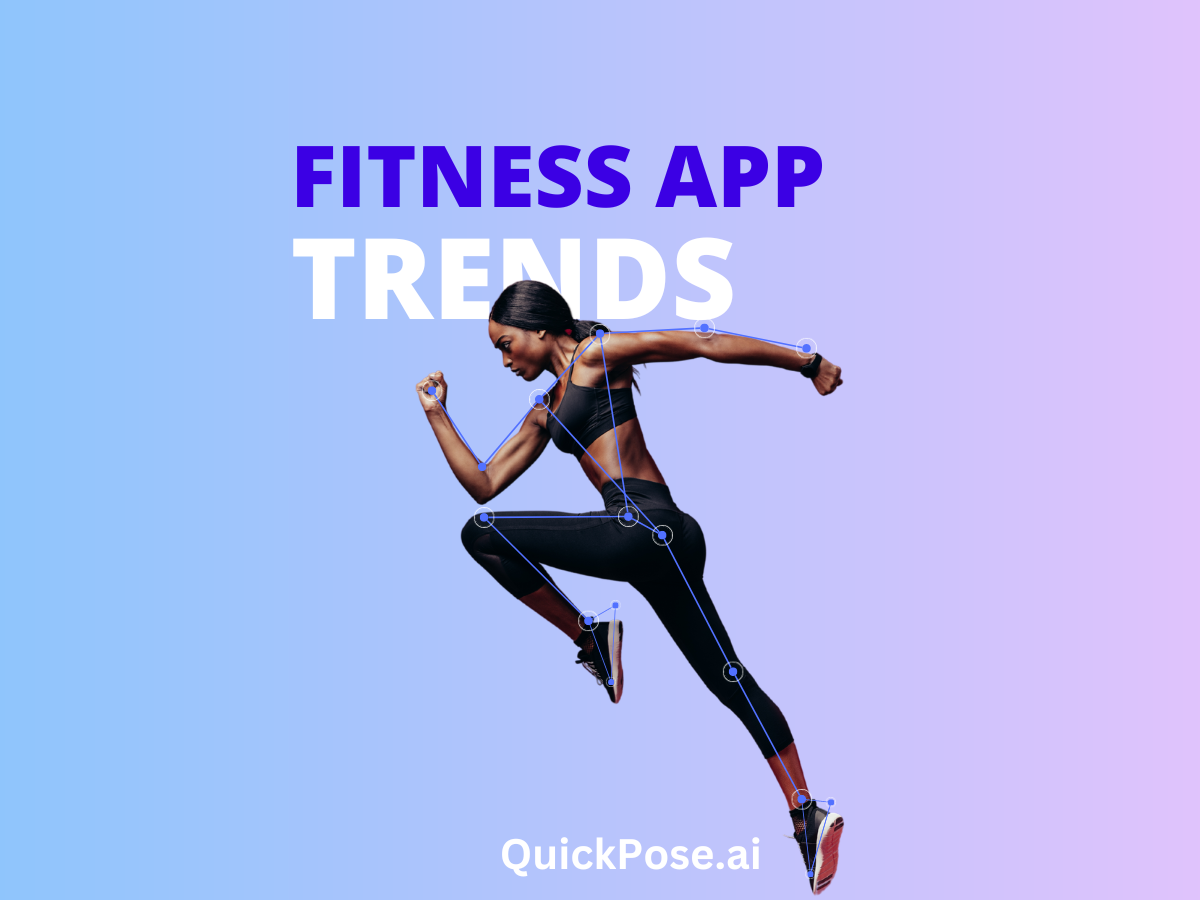Artificial intelligence (AI) is rapidly transforming the healthcare landscape. From monitoring your well-being to providing personalised support, AI-powered health apps are revolutionising how we approach our physical and mental health. This article explores some of the best health apps using AI in 2024:
About us: At QuickPose, we build AI technology rooted in human movement. Our AI pose estimation products are used in health and fitness apps.
Category: Early Disease Detection
Early Disease Detection AI Health apps are apps designed to help users and medical providers identify development of diseases as early as possible. Preventing diseases from developing as early as possible means higher quality of life, and much lower medical costs for both patient and provider.
SkinVision
SkinVision uses Computer Vision AI to analyse photos of skin lesions and moles, helping users detect signs of skin cancer early. Users take photos of their moles on their skin and are given a risk score. Users are given reminders to take their next photo, which enriches the data used to assess their risk.
Prices are $29.99 for 3 months, $49.99 for 12 months, or $6.99 for a single assessment.
SkinVision also uses AI in their camera technology- simply holding the camera close to a lesion on the skin automatically focuses and takes a photo; a small yet significant enhancement to the user experience, as most of us know the frustrations of trying to focus a smartphone camera a short distance. “That photo is then run through a whole pipeline of machine learning networks that recognize the image and rate it as high, low, or medium risk; a traffic light system. This is all done within 20 seconds and this message is provided back to the customer. If it’s high risk, within 48 hours our dermatologists can get back to the customer” says the CEO Erik de Heus.
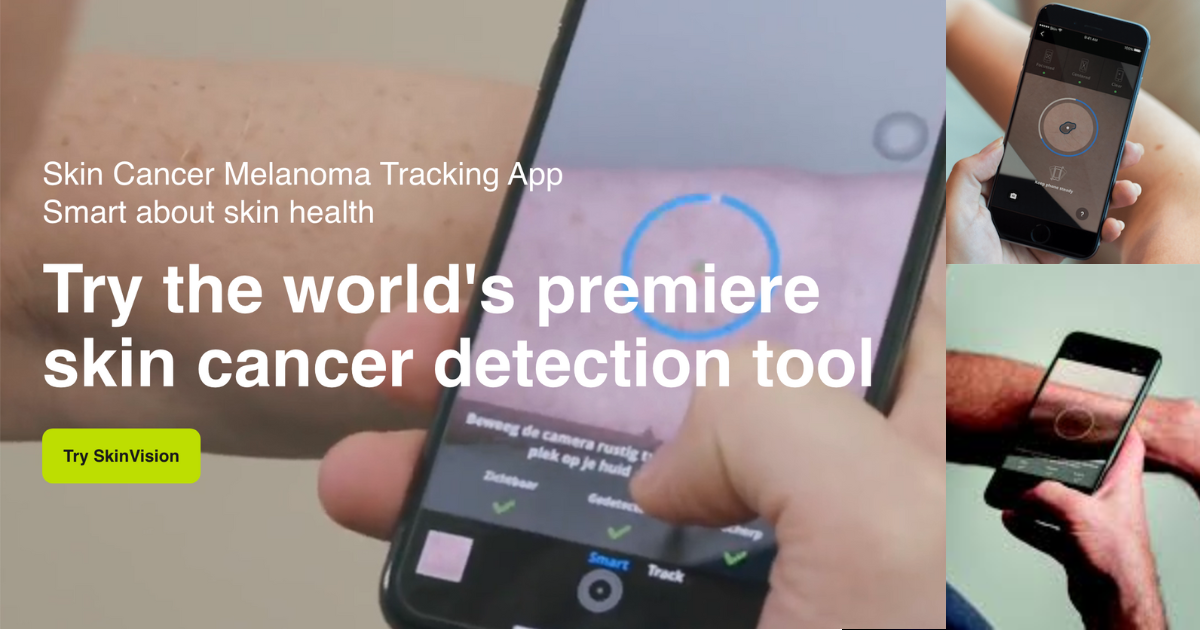
Get Access to Our TestFlight Demo
Check out QuickPose iOS SDK abilities in our TestFlight Demo app.
Category: AI Health Symptom Checkers
An AI Health Symptom Checker app is a mobile application that utilises artificial intelligence to help users understand potential causes of their health concerns based on their reported symptoms.
Ada
An AI-driven symptom checker that offers personalised insights into users’ health concerns, comparing symptoms against a vast medical database. Ada is a chat powered experience designed by doctors. The app has expanded beyond symptom checking and offers health management.
Users may find the chat interface akin to Chat-GPT, however Ada boasts a more robust data bank and foundational knowledge on which the questions, follow up questions and diagnostics are based.
From Ada: “Our underlying comprehensive medical knowledge base was built by a team of more than 50 in-house doctors over the course of several years and one million hours, to ensure high medical quality through sophisticated disease modelling procedures and extensive testing using real-world clinical case scenarios, competitive comparisons, medical collaborations, external independent review, peer-reviewed research, and user feedback.”
Ada is primarily a b2b service, but their d2c app has meant they can accelerate the number of users and improve their models.
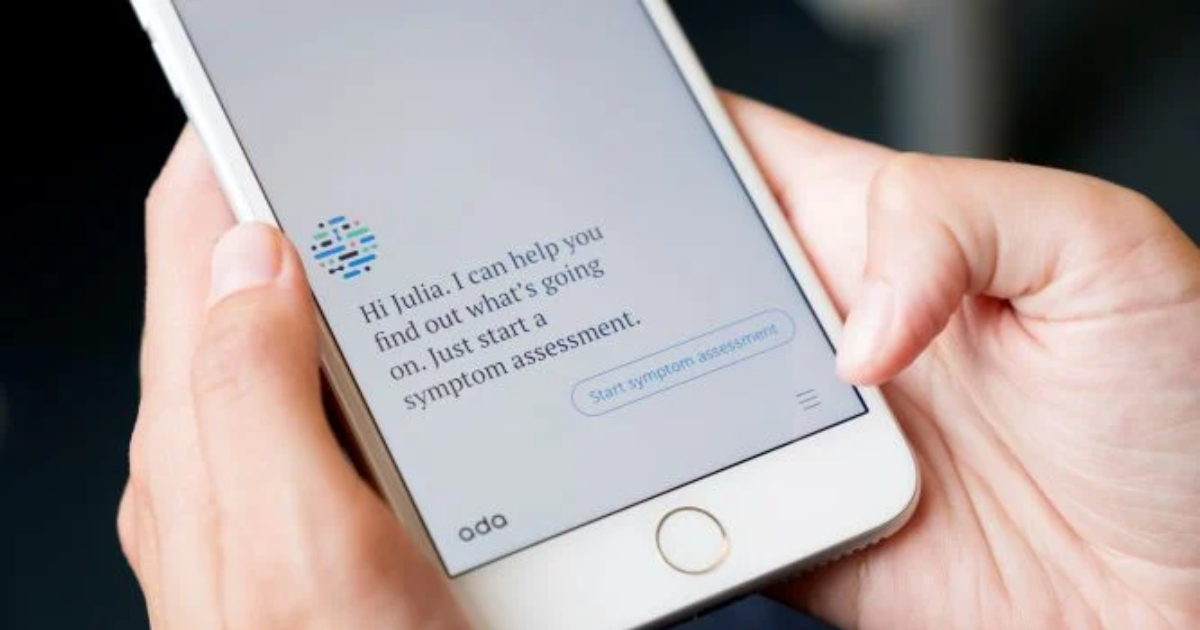
Category: Mental Health and Wellness AI Apps
A Mental Health and Wellness AI App uses artificial intelligence (AI) technology to provide support and resources for users’ mental and emotional well-being.
Sonde: Monitoring Mental Fitness with Your Voice
Sonde takes a unique approach to mental health tracking. It analyses 30-second voice samples to measure vocal biomarkers like smoothness and control. These can indicate changes in your mental state. Sonde translates this data into a “mental fitness score” and automatically creates a voice journal for you to track trends. While not a diagnostic tool, Sonde empowers you to monitor your well-being and gain insights into your emotional state through the power of your voice.
- Vocal Biomarkers: The app analyses a 30-second voice sample you provide. It focuses on specific vocal features like smoothness, control, liveliness, and clarity. These subtle changes in your voice can be linked to underlying mental health states.
- AI Analysis: Sonde’s AI engine analyses the vocal data and translates it into an overall “mental fitness score” ranging from “excellent” to “pay attention.” This score provides a snapshot of your current state and can be used to track trends over time.
- Journaling with Insights: Sonde automatically transcribes your voice sample into a digital journal entry. This allows you to review past entries and identify potential correlations between your voice patterns and daily experiences.
- M3 Checklist Integration: The app integrates with the M3 Checklist, a clinically validated tool for assessing mental health conditions like depression, anxiety, PTSD, and bipolar disorder. This provides a more comprehensive picture of your mental well-being.
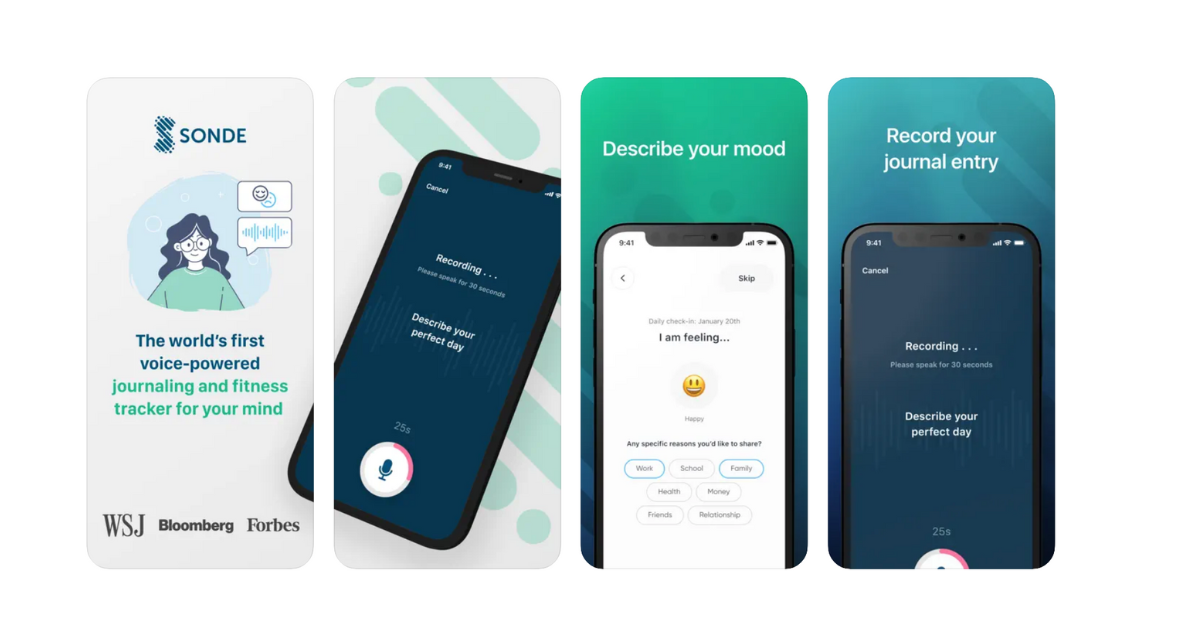
Wysa: AI Chatbot for Mental Wellness Support
Wysa is an app that utilises an AI chatbot to provide mental health support. Users can anonymously chat with Wysa about their struggles, anxieties, or simply use it as a space to reflect. The app leverages techniques from established therapies like Cognitive Behavioural Therapy (CBT) and Dialectical Behaviour Therapy (DBT) to help users manage conditions like stress, anxiety, depression, and sleep problems.
Wysa’s AI analyses the user’s conversation and emotional expressions to provide personalised support and coping mechanisms. This can include guided exercises, mindfulness practices, or tools to manage anger and conflict. For users seeking additional support, Wysa offers the option to connect with qualified mental health professionals for further guidance.
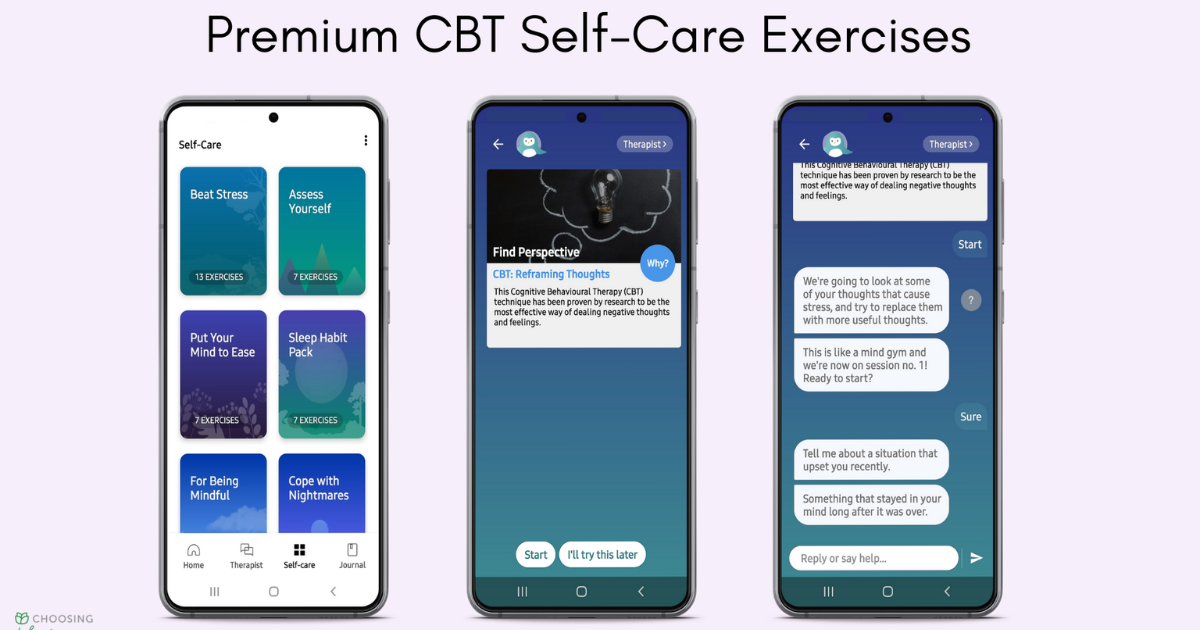
Category: AI Health and Fitness Monitoring
AI Health and Fitness Monitoring apps leverage artificial intelligence (AI) to analyse your health and fitness data, providing insights and guidance for a more personalised approach to well-being.
iHairium: AI-Powered Hair and Scalp Analysis
iHairium utilises computer vision technology, a form of AI, to analyse hair and scalp health through user-uploaded photos. The app focuses on hair loss concerns and aims to provide a more holistic approach to diagnosis and management. Here’s how the AI might work:
- Image Capture: Users upload photos of their scalp and hair.
- AI Analysis: The AI engine analyses the uploaded images, potentially looking at factors like hair density, scalp visibility, and hair breakage.
- Insights and Recommendations: Based on the analysis, the app generates a report detailing potential causes of hair loss and suggests personalised treatment options. These might include lifestyle adjustments, specific hair care products, or recommendations to consult a trichologist (hair loss specialist).
Athlytic: AI-Powered Health Monitoring and Fitness Insights
Athlytic takes a data-driven approach to health and fitness by utilising AI to analyse information from your connected health devices. This can include sleep trackers, activity monitors, and potentially smart scales.
The app focuses on providing actionable insights based on your personal health data. Its AI engine can analyse historical data (e.g., from Apple Health) to understand your sleep patterns, activity levels, and recovery trends. Subscriptions are $3 per month, which comes in 10x cheaper than Whoop(!) however some users claim that Whoop!’s accuracy is worth the price tag.
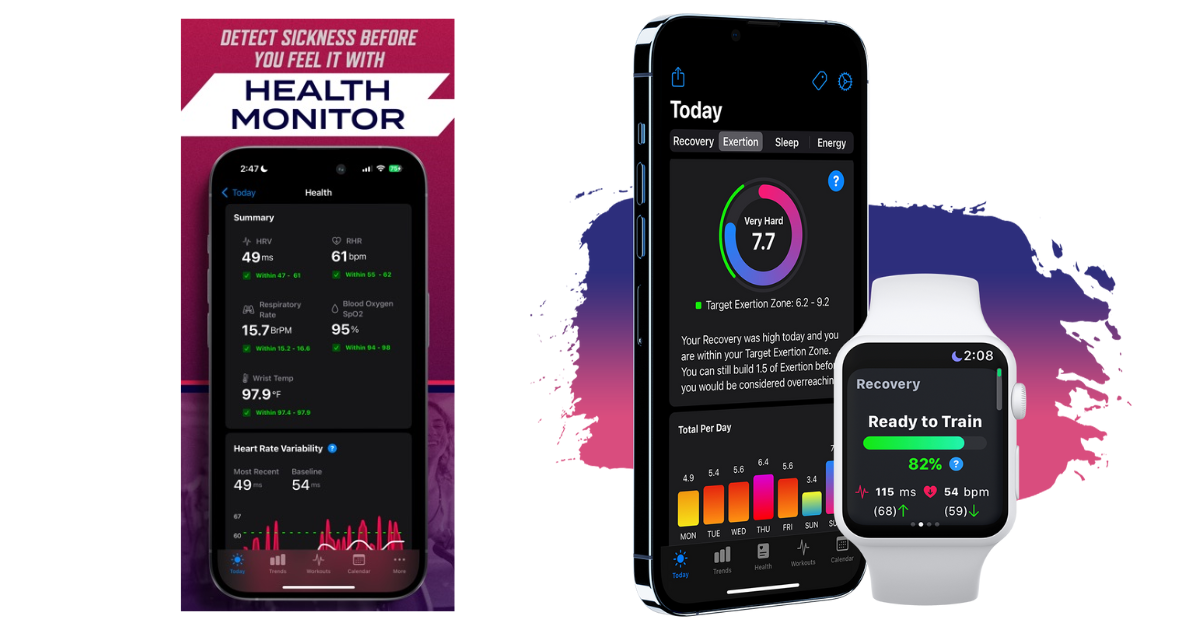
Binah.ai: AI Platform for Remote Health Monitoring (B2B)
Binah.ai is a business-to-business (B2B) solution that leverages AI to create a remote health monitoring platform. This platform allows healthcare providers to offer patients a convenient way to track vital signs and specific blood parameters from the comfort of their own homes.
Here’s what sets Binah.ai apart:
- Non-Contact Monitoring: Utilising a smartphone, tablet, or laptop camera, Binah.ai’s AI technology can potentially measure vital signs such as blood pressure and heart rate without requiring physical contact with the user.
- AI-Powered Blood Tests: In a groundbreaking development, the app claims to analyse video recordings to estimate blood parameters like haemoglobin, haemoglobin A1C, and cholesterol.
- Accessibility and Convenience: Binah.ai aims to simplify remote health monitoring by eliminating the need for wearables or additional equipment. The app is compatible with various devices and operating systems for easy access.
- Potential Cost Savings: By reducing the need for in-person visits and dedicated monitoring hardware, Binah.ai suggests it can contribute to lower healthcare costs while maintaining monitoring standards.
Important to Note:
It’s important to emphasise that Binah.ai is a platform for healthcare providers, not a direct-to-consumer application. The accuracy of the AI-powered blood tests and other health measurements should also be verified by the healthcare provider offering the platform.
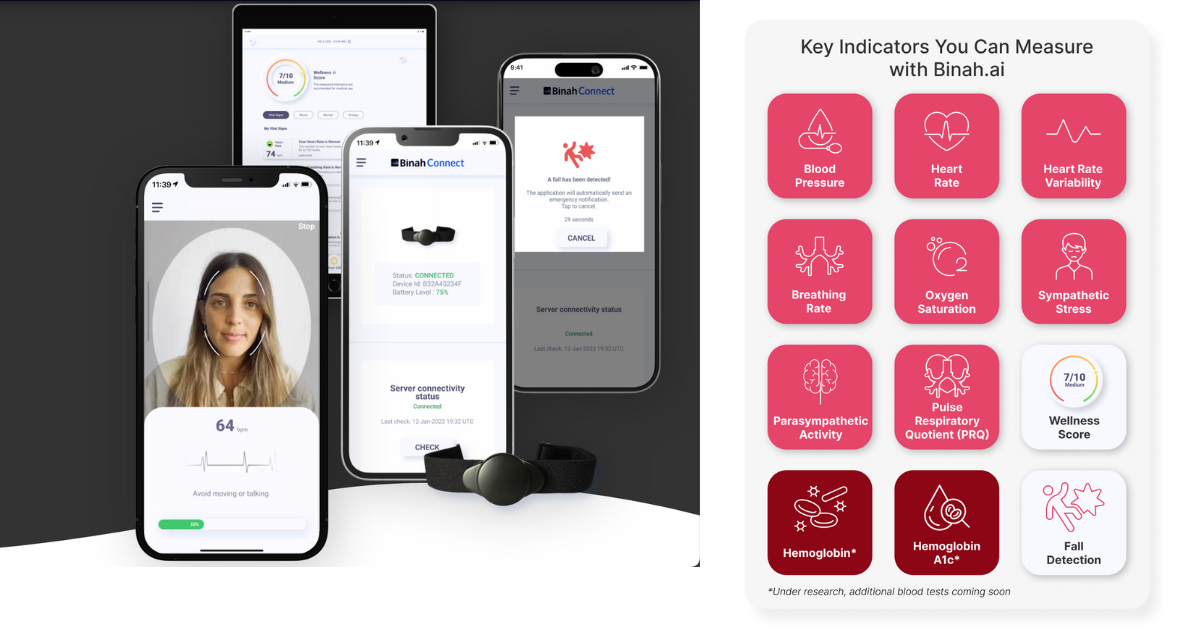
Category: AI Physiotherapy and MSK Care Apps
AI Physiotherapy and MSK Care Apps use artificial intelligence (AI) technology to enhance traditional physiotherapy practices for musculoskeletal (MSK) conditions. These apps aim to provide users with a more accessible, personalised, and potentially more effective approach to managing pain, improving mobility, and recovering from injuries. AI Physiotherapy apps are more likely to use AI Pose Estimation technology, which detects the body’s movement, as this is a key component of Physiotherapy services.
Reflex: Track Shoulder Mobility Recovery with AI
Reflex provides a user-friendly tool for assessing and tracking shoulder mobility recovery at home. The app leverages AI-powered pose estimation technology. Users follow on-screen instructions to assume specific positions, and the app captures video footage through your smartphone camera. The AI then analyses the video to automatically calculate your shoulder range of motion, eliminating the need for manual measurements or additional equipment. Users also track shoulder pain, and Reflex uses gesture recognition to read the pain scores from the user holding up fingers as values. Reflex allows users to securely store your results and monitor progress over time. This data can be shared with healthcare professionals to gain further insights into your recovery journey.
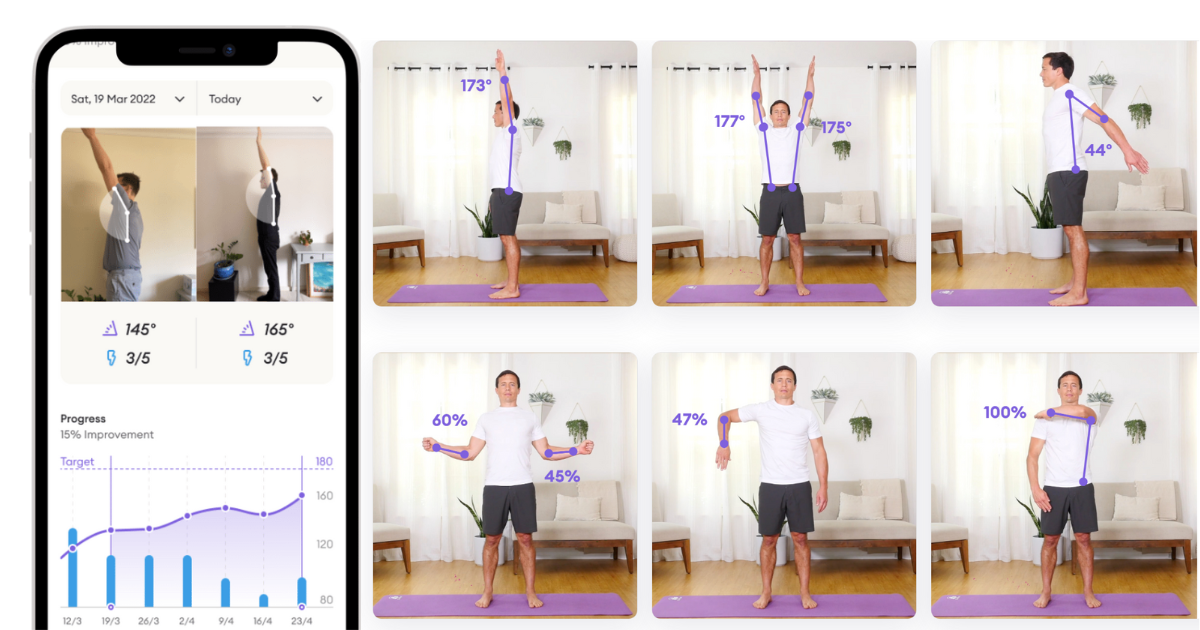
Motics: AI-Powered Movement Tracking for Recovery
Motics is a mobile application that focuses on aiding recovery journeys. It caters to individuals recovering from injuries, managing chronic conditions, or simply aiming to improve mobility.
Here’s a breakdown of Motics’ functionalities:
- VisionAI Motion Tracking: This technology uses computer vision to analyse exercise movements across 73 key body points. The app aims to provide feedback on exercise form, potentially helping users perform exercises correctly and maximise their recovery efforts.
- Personalised Recovery Tracking: Motics offers customizable dashboards that allow users to visualise their recovery progress according to their preferences. These dashboards can be used to track progress, set goals, and celebrate milestones.
The app roadmap includes features powered by AI, including Motics AI Chatbot, Remote Physiotherapy, and a way to connect users with medical professionals, blending AI with real-world care.
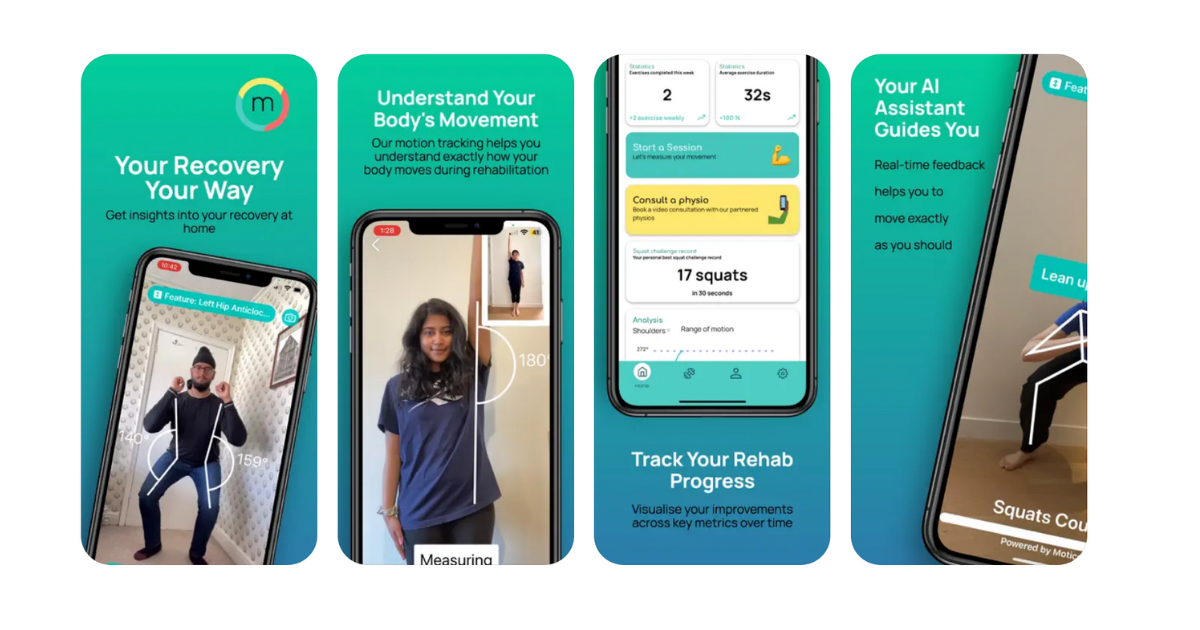
Hinge Health: Online MSK Care and Virtual Physiotherapy
Hinge Health goes beyond traditional physical therapy by combining expert care with cutting-edge AI technology. This approach aims to deliver personalised exercise programs and real-time feedback for effective pain management.
How Hinge Health Uses AI:
- Real-time Movement Analysis: Hinge Health utilises computer vision, powered by AI, to track a user’s full body movements during exercise sessions. This real-time feedback allows users to see and hear corrections as they perform exercises, ensuring proper form and maximising the effectiveness of each movement.
- Personalised Care: Data collected through movement tracking informs the development of personalised exercise programs. This ensures the program targets specific weaknesses and limitations identified by the AI.
- Confidence-Building Feedback: The AI provides real-time audio and visual feedback, helping users refine their exercise form and build confidence in their movements.
- Continuously Personalised Care: Data from each exercise session is used by the care team, including physical therapists and health coaches, to regularly monitor progress and adjust the program as needed. This ensures the program remains tailored to the user’s evolving needs and recovery journey.

Conclusion
From mental health support to chronic condition management, AI-powered apps are transforming the way we approach our well-being.
As we’ve seen, AI can analyse data, personalised recommendations, and even provide real-time feedback to optimise your health journey. But the potential doesn’t stop there. Imagine an app that can track your form during exercise routines, analyse your sleep posture for quality insights, or even offer physical therapy guidance through your smartphone camera.
This is the power of AI pose estimation, and QuickPose is at the forefront of building these innovative tools. Want to see how AI pose estimation can empower your health app? At QuickPose we build products that leverage AI. Check out our TestFlight Demo app that shows pose estimation in action.
